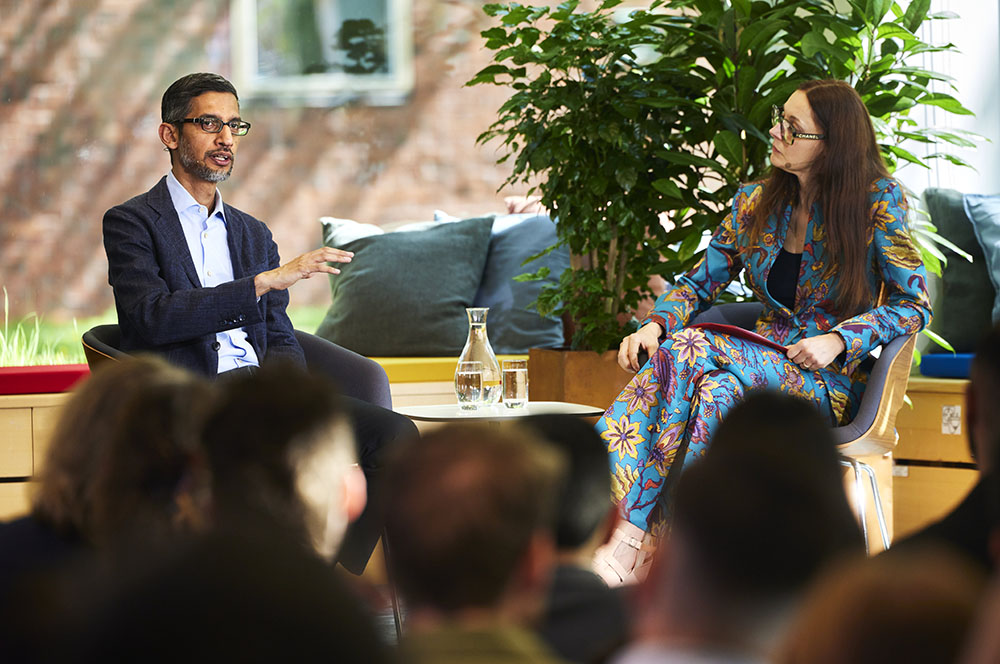Google’s CEO Sundar Pichai visits KTH

During his first trip to Sweden, the CEO of Google also visited KTH. On the agenda were meeting with KTH personnel and students and a conversation about the biggest technological talking point of the year, artificial intelligence.
The first question KTH Professor Danica Kragic asked was why the CEO of Google and its parent company Alphabet was visiting Sweden and KTH. The duo took part in an informal conversation in front of an audience made up of KTH students on Tuesday 23 May 2023.

“Sweden is one of the world’s key innovation hubs, and this is where Google’s video conferencing software, for example, is being developed. Google also has a research collaboration here regarding reduced energy consumption, and a lot of KTH alumni work for Google,” said Pichai.
Difficult keeping up
He, if anyone, has thought a great deal about artificial intelligence (AI) in recent years, the topic of conversation during the visit. Not least when small upstart companies like OpenAI launched software like ChatGPT, AI software that has taken the world by storm over the last six months and competes with Google for people’s knowledge acquisition. Pichai admitted that he himself finds it difficult keeping up with the pace of development.
He then emphasised several times the importance of developing AI responsibly. The technology must help people, and be developed in a well-considered, responsible way. Ethics are key.
AI important for the climate
During the conversation, Danica Kragic, a robotics researcher at KTH, asked Google’s CEO questions. One of them was how Sundar Pichai thinks AI will affect collaborations between different stakeholders that arise in the wake of the advance of AI. Pichai thinks that all of these collaborations will bring nations, companies and people closer together, but they will also be difficult. But collaboration is essential. Not least because AI will have an impact on areas such as IT security and sustainability research.
“AI will play a role in, for example, increased energy efficiency, the possibility of developing new, sustainable materials and creating simulations regarding the generation of fusion energy,” said Pichai.

Right to have fears
The duo then moved onto people’s fears of AI. Are they legitimate? Pichai thinks so, provided they are used to understand and address the disadvantages before they turn into major problems for society. It is important not to build first and discover the problems afterwards.
“AI will be our new assistant in the working day. The technology will help us prioritise. AI can help us decide which images and text are most important right now. AI will also be able to help teachers in their work.”
Having said that, continuing professional development will be important. People will need to study throughout their lives to a greater extent, and change professional roles. Continuing professional development will become more important than ever as the labour market changes.
Google’s CEO was asked if he had any tips for the KTH students there. And he did.
“Study a broad range. Take an interdisciplinary approach. Combine technology studies with, say, neuroscience or philosophy.”
According to Pichai, AI will have a huge impact on society and it is important to understand how the technology changes the circumstances for all of us.
“But don’t forget to follow your heart too. If you like what you do, you’ll also be good at it.”
Text: Peter Ardell
